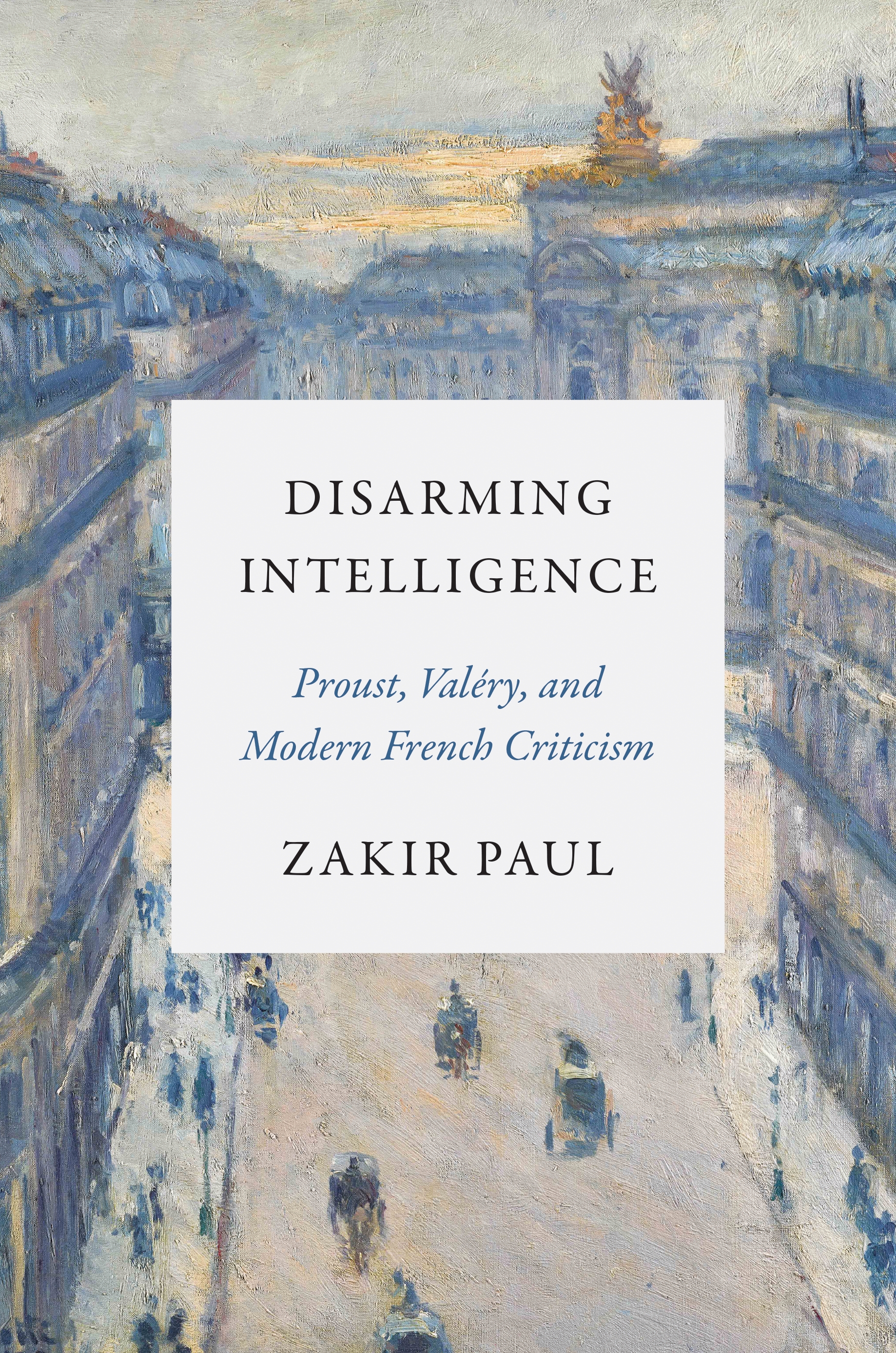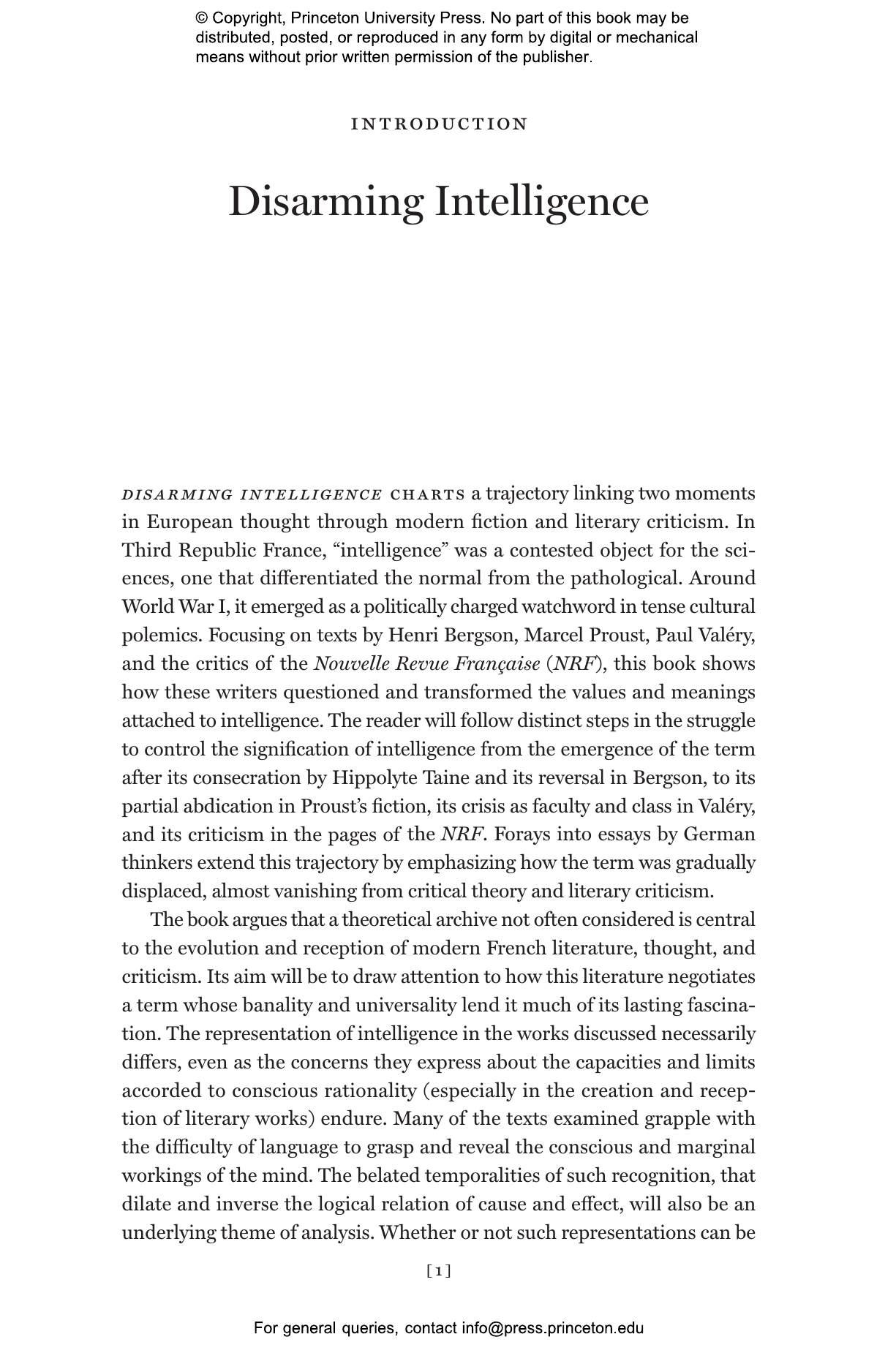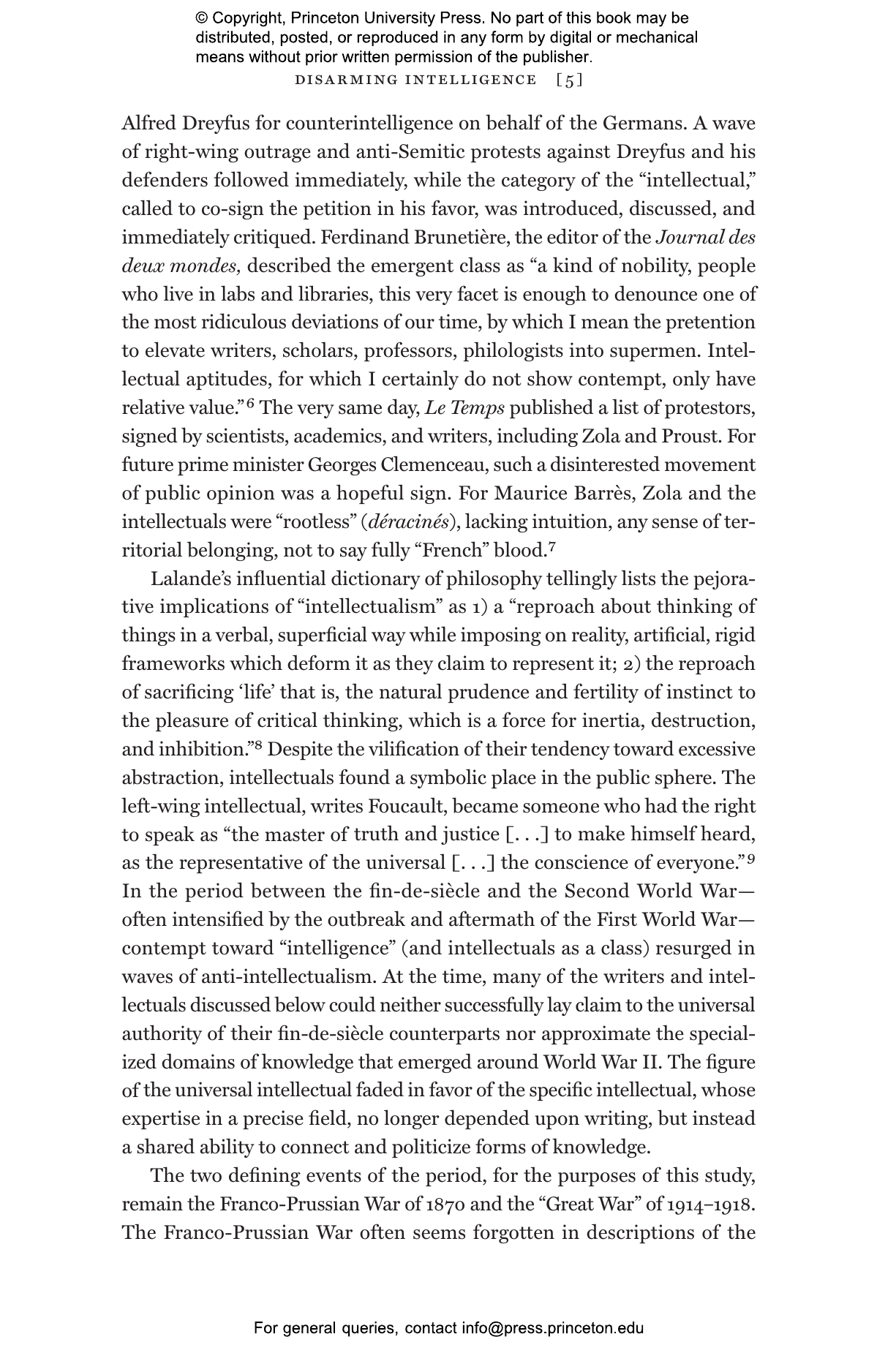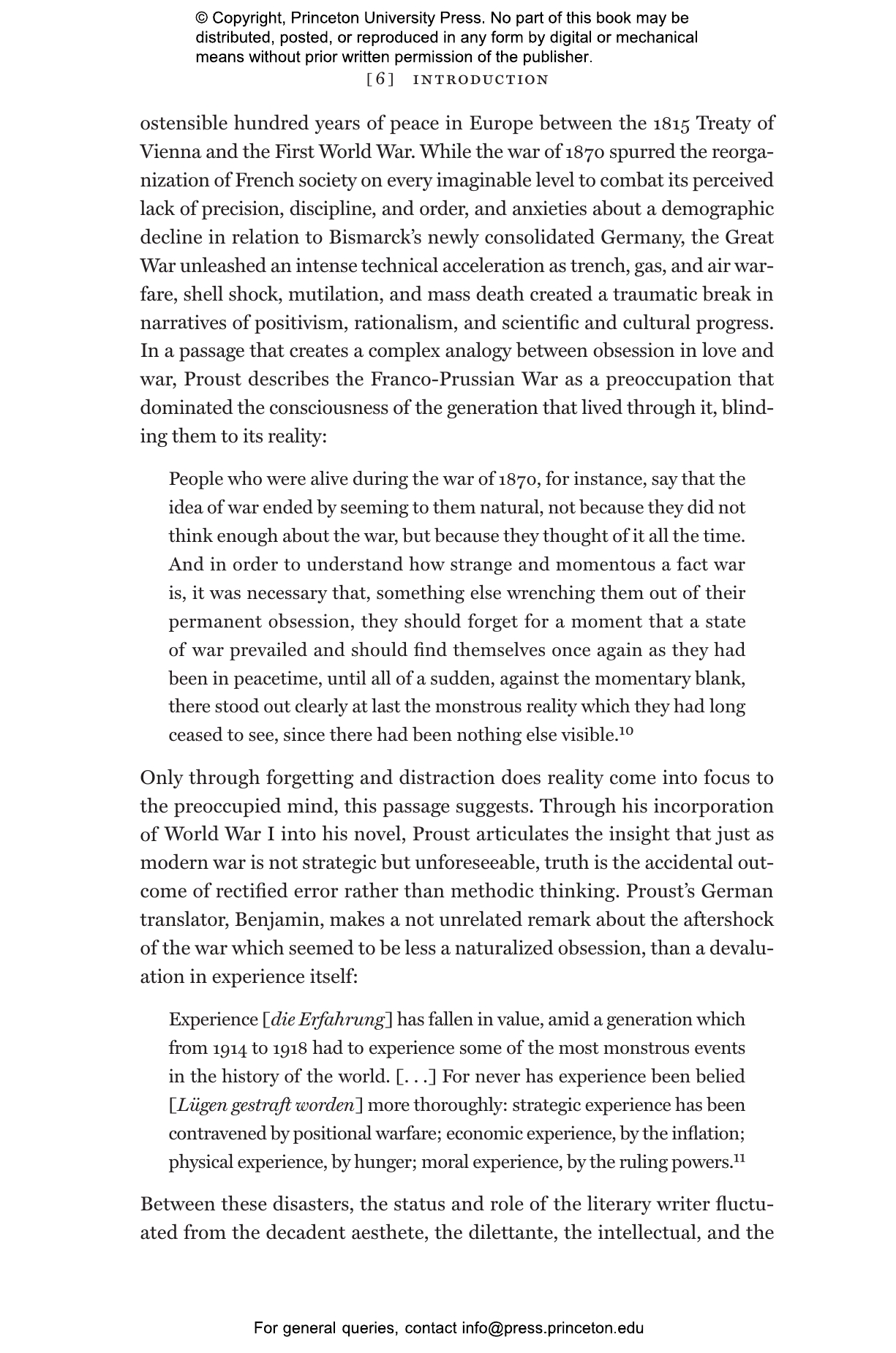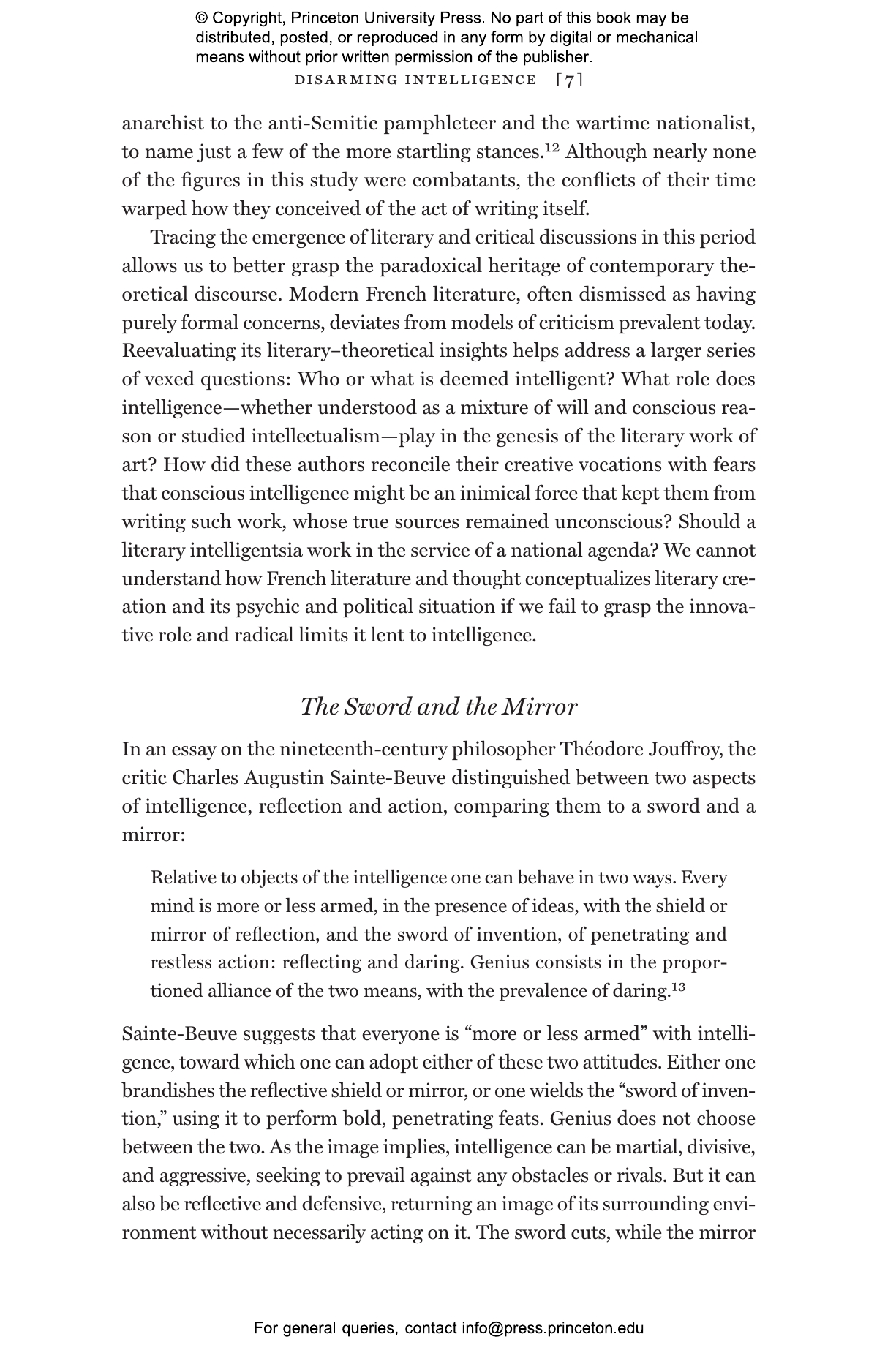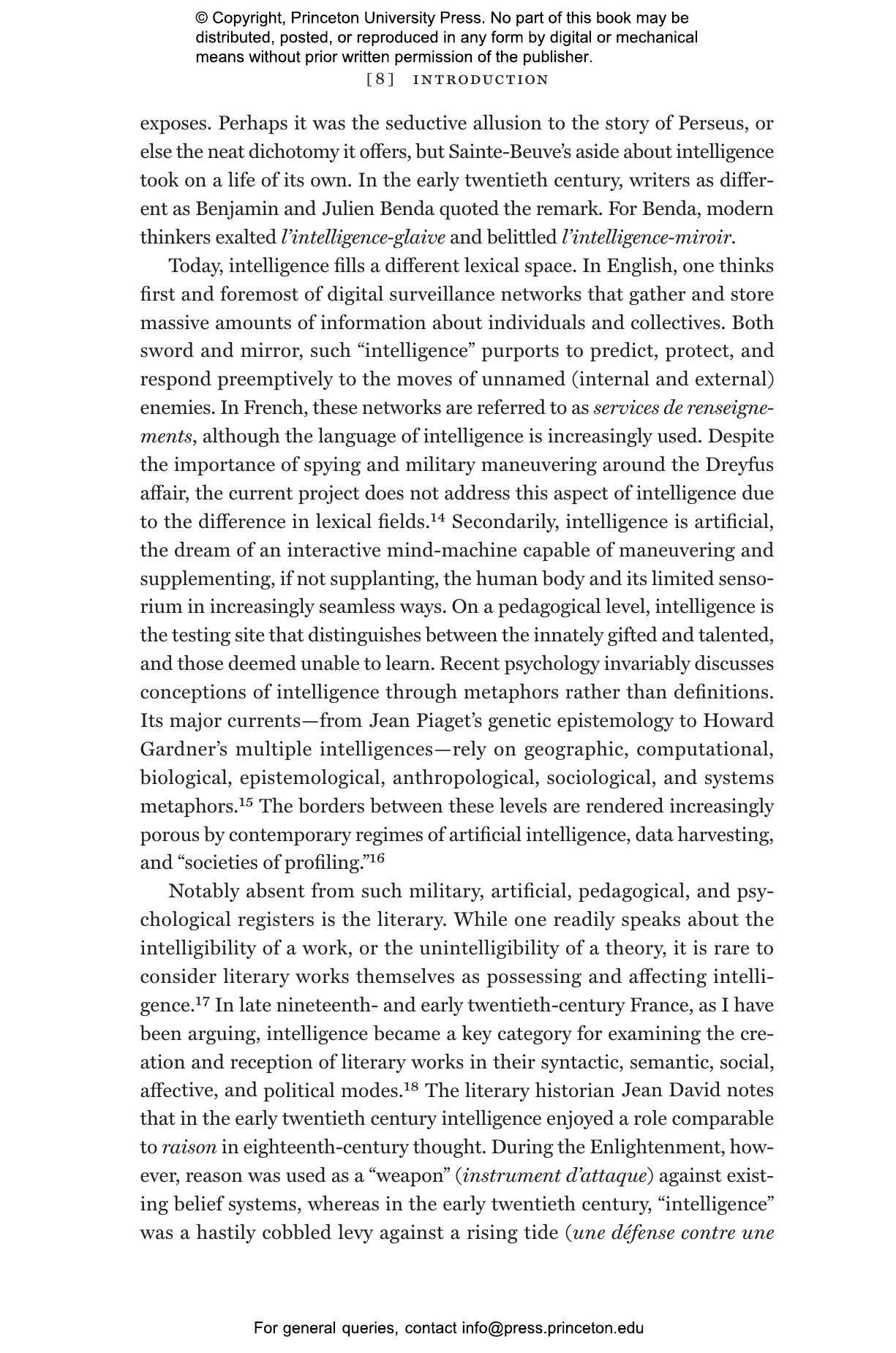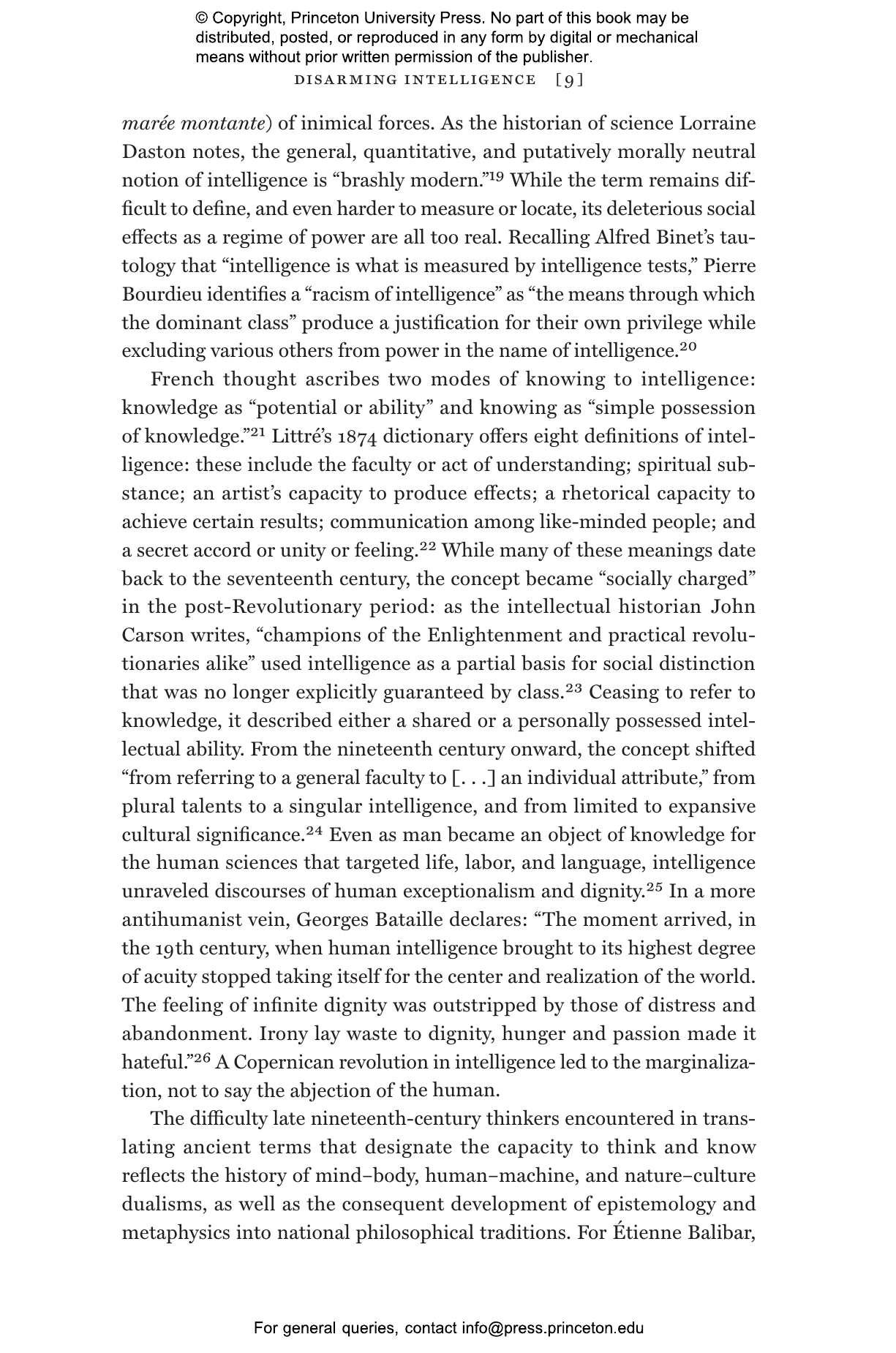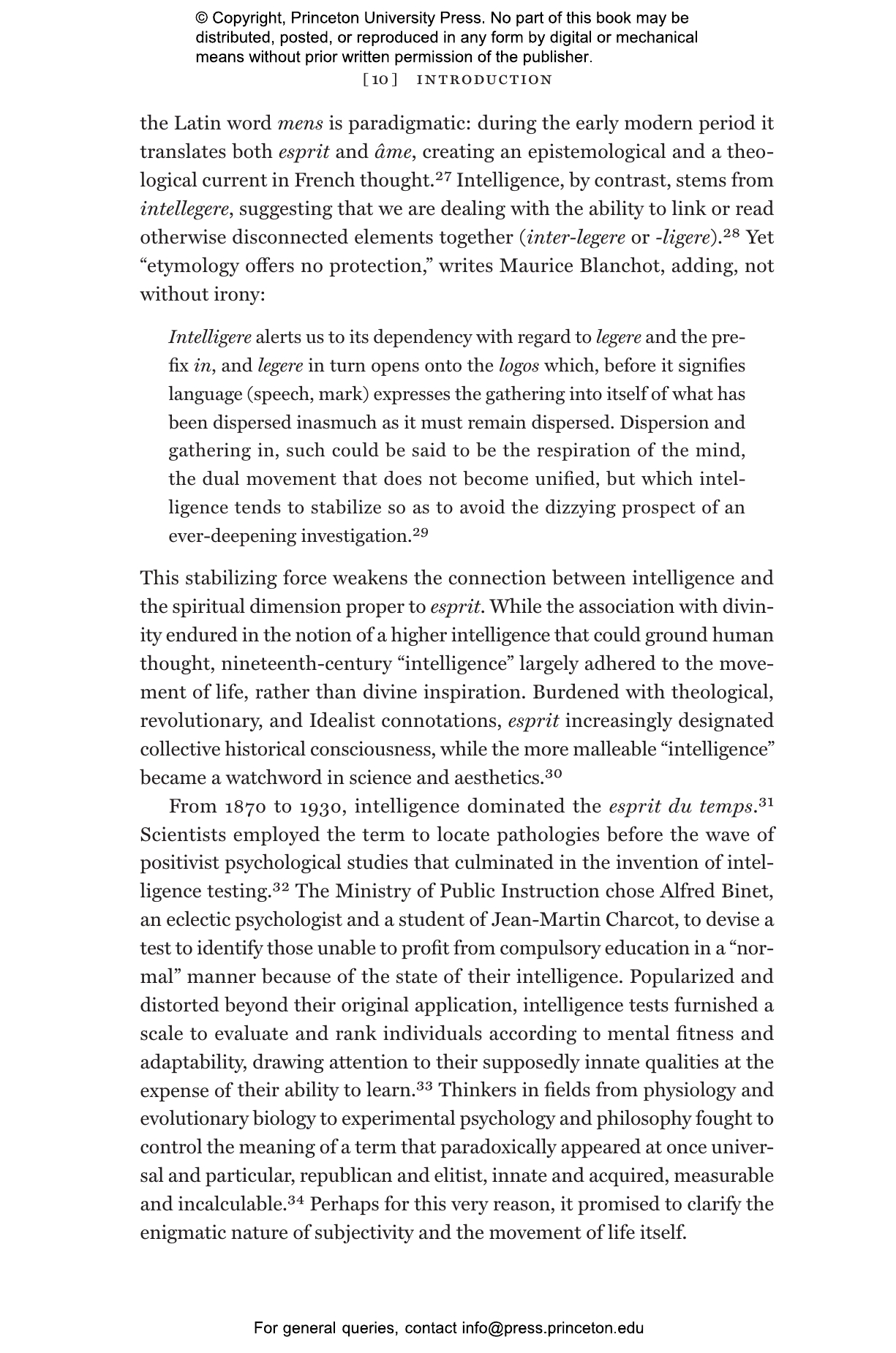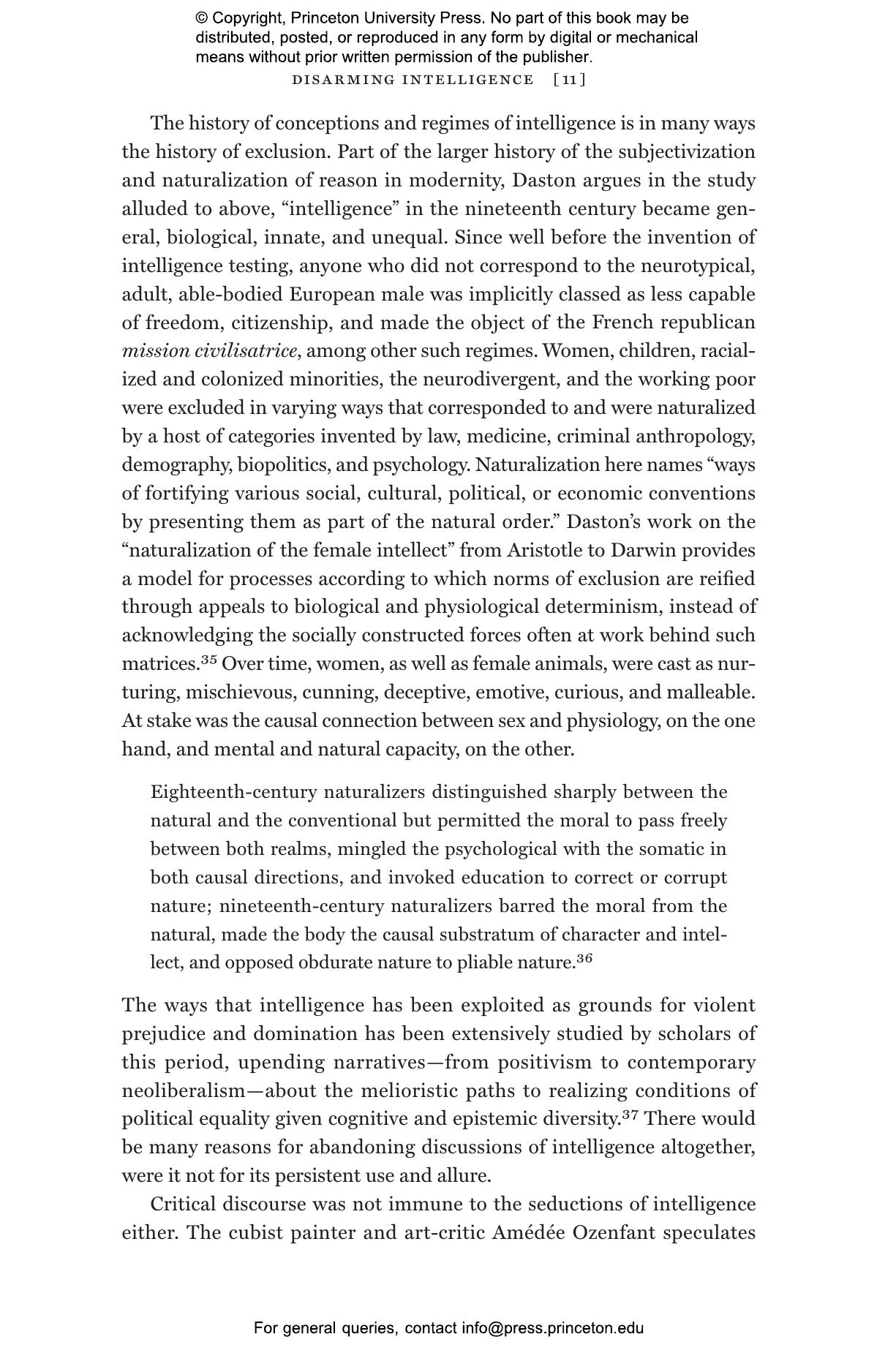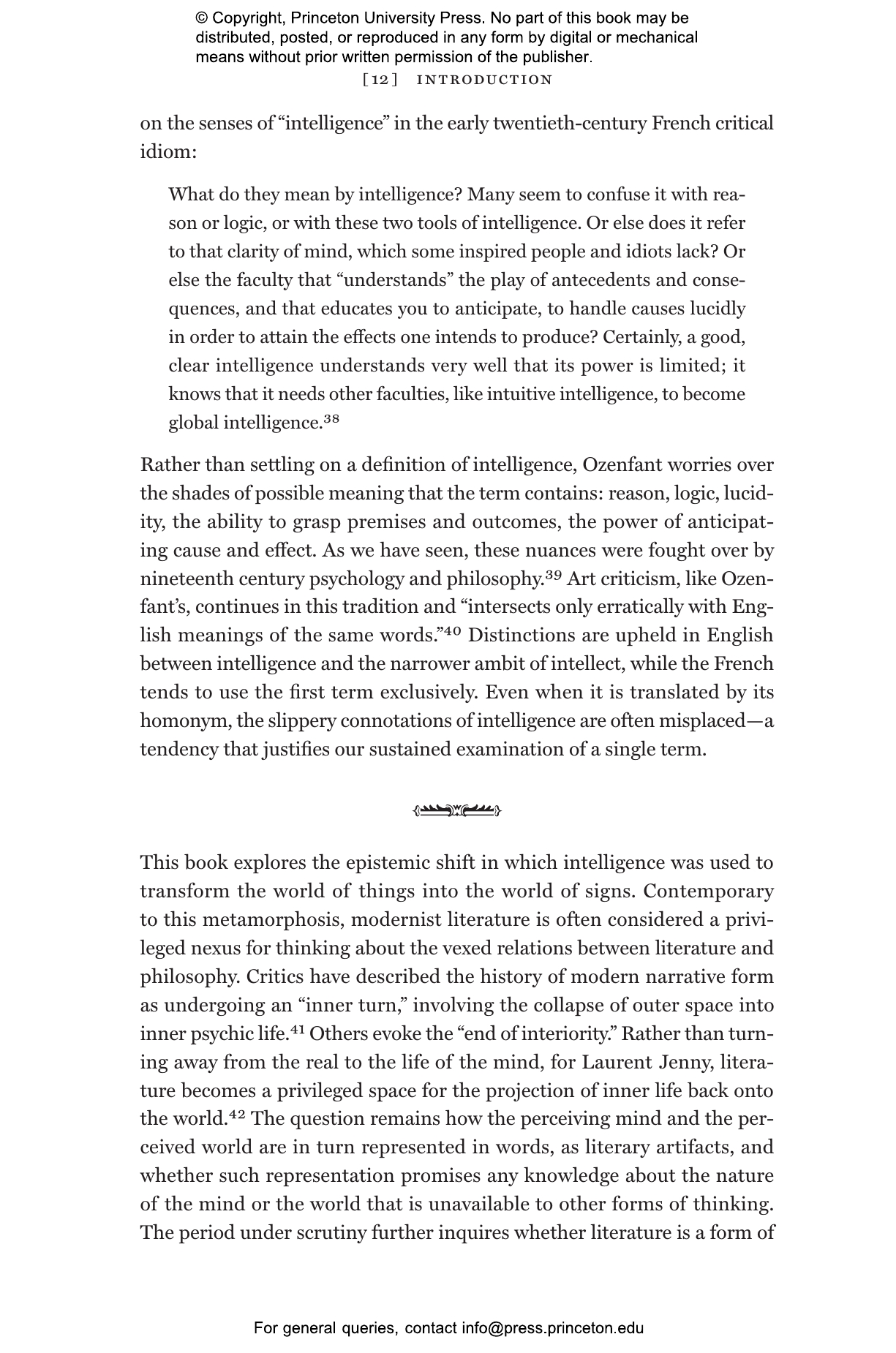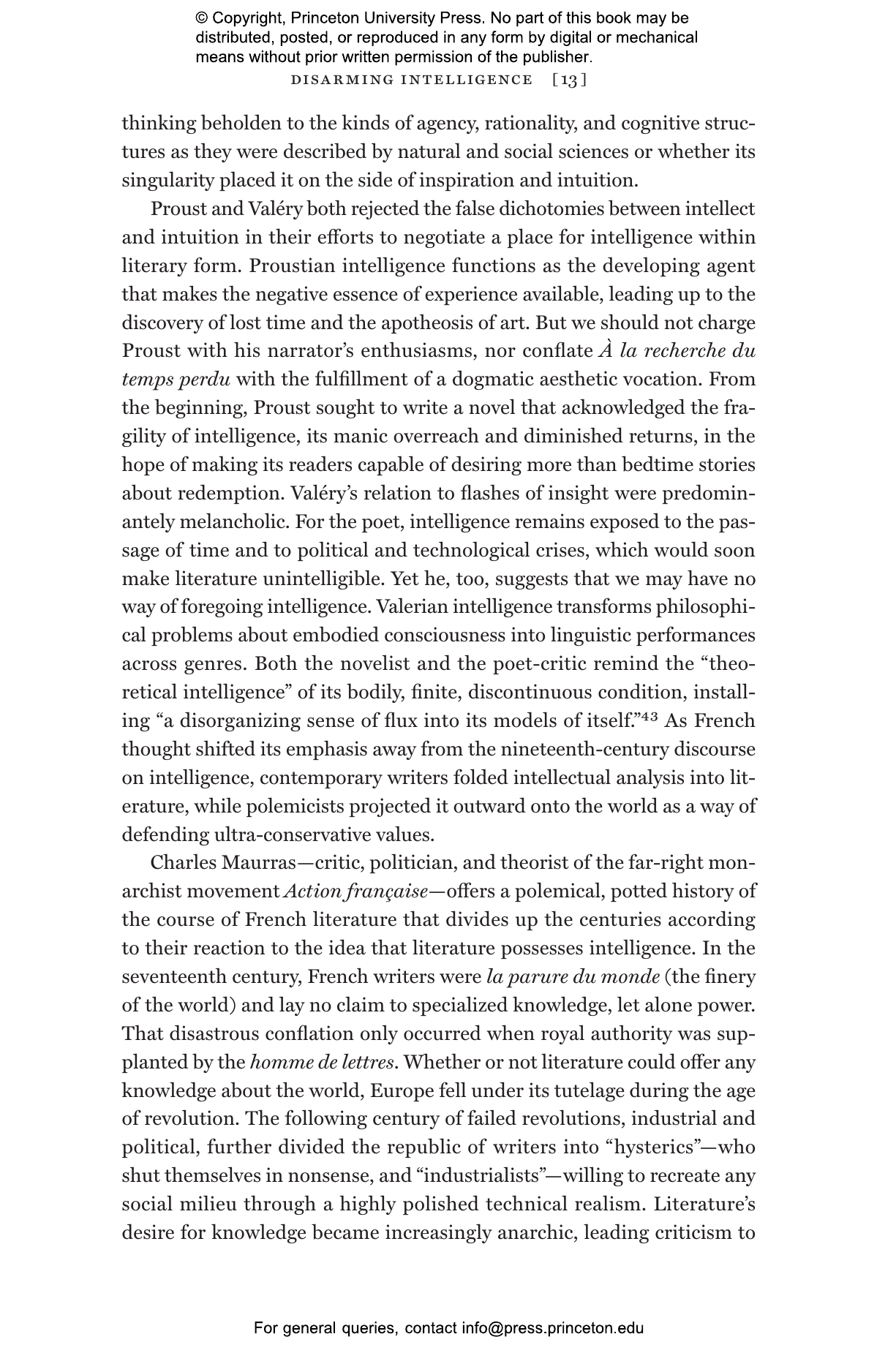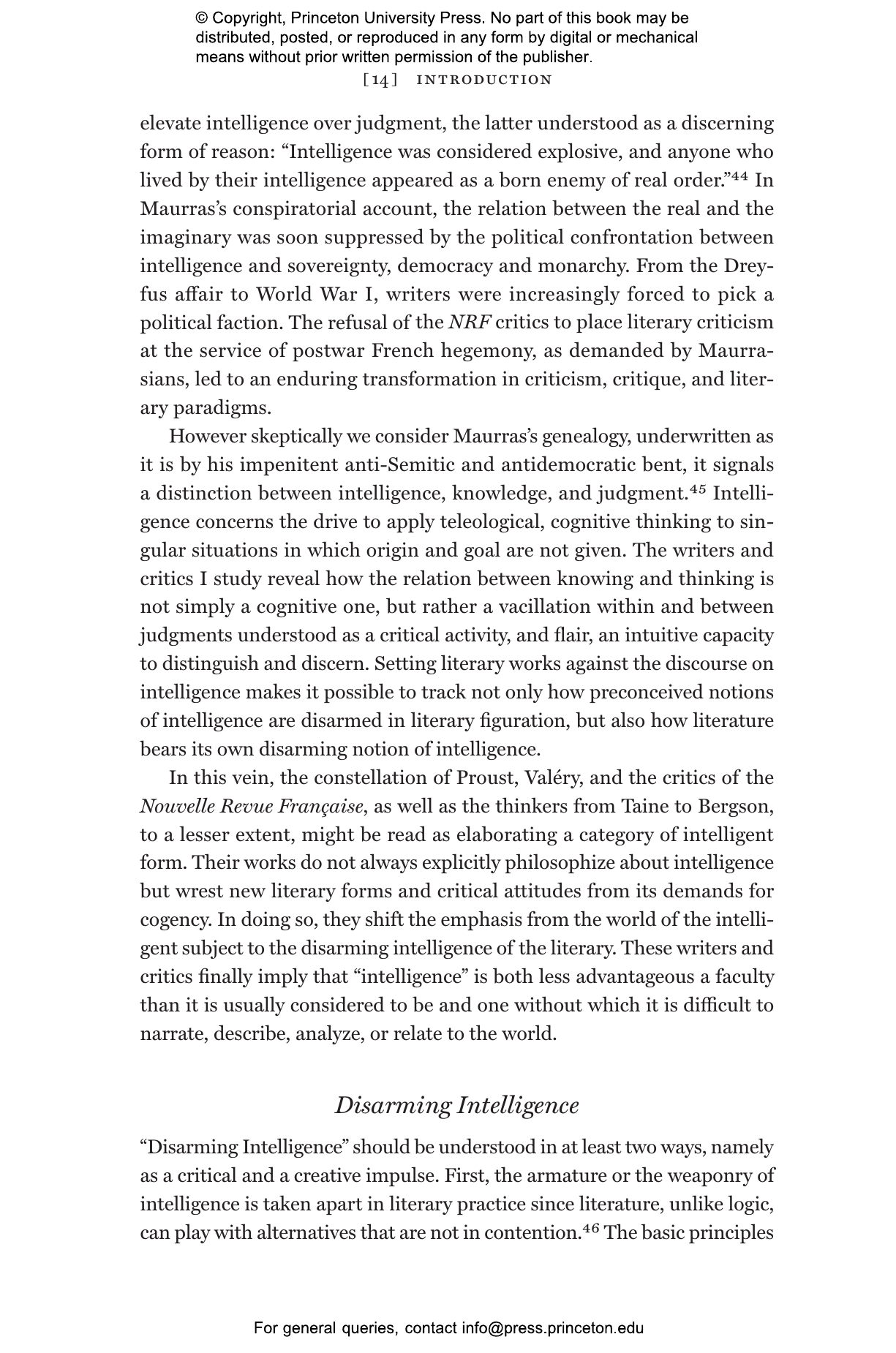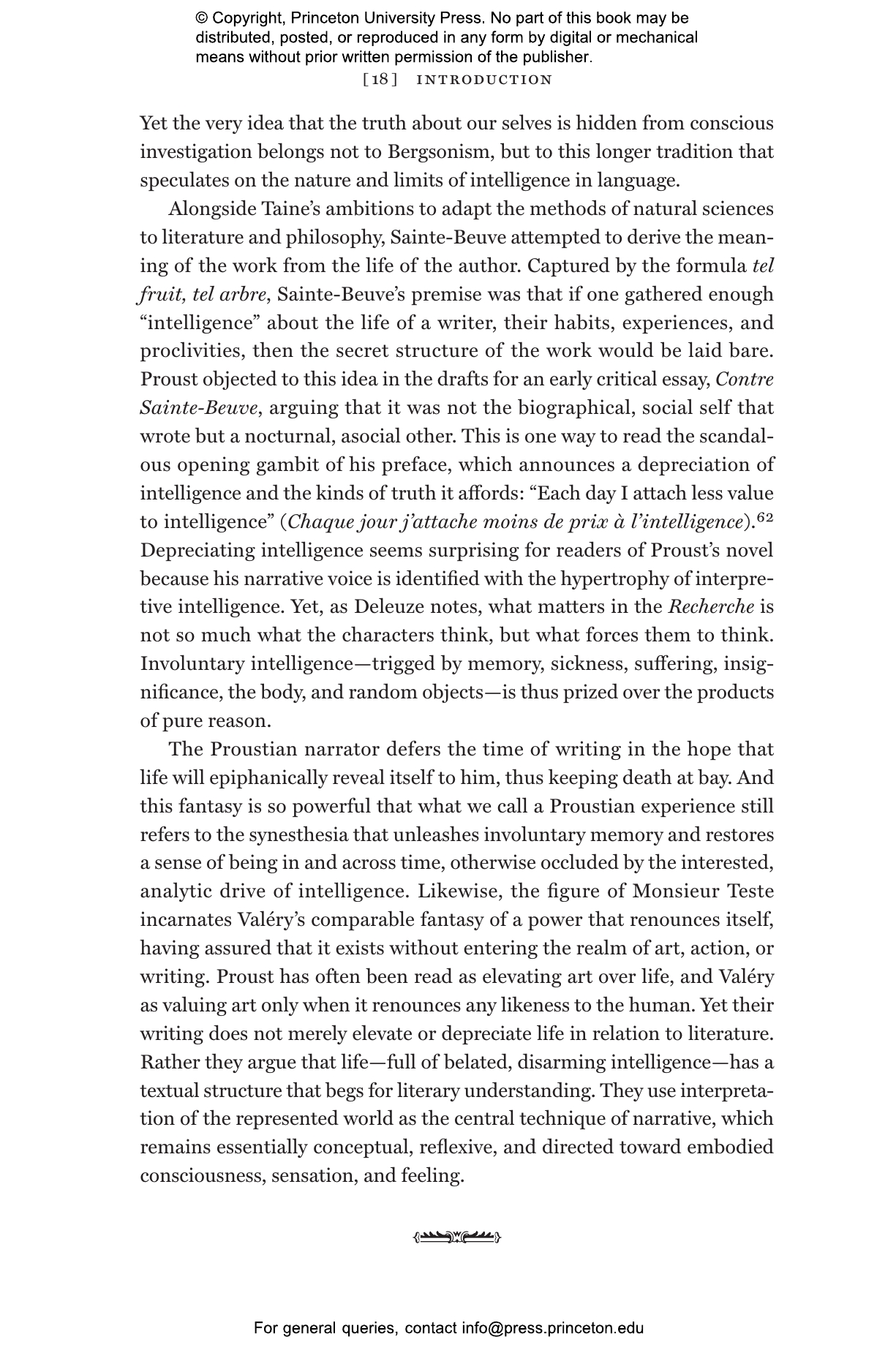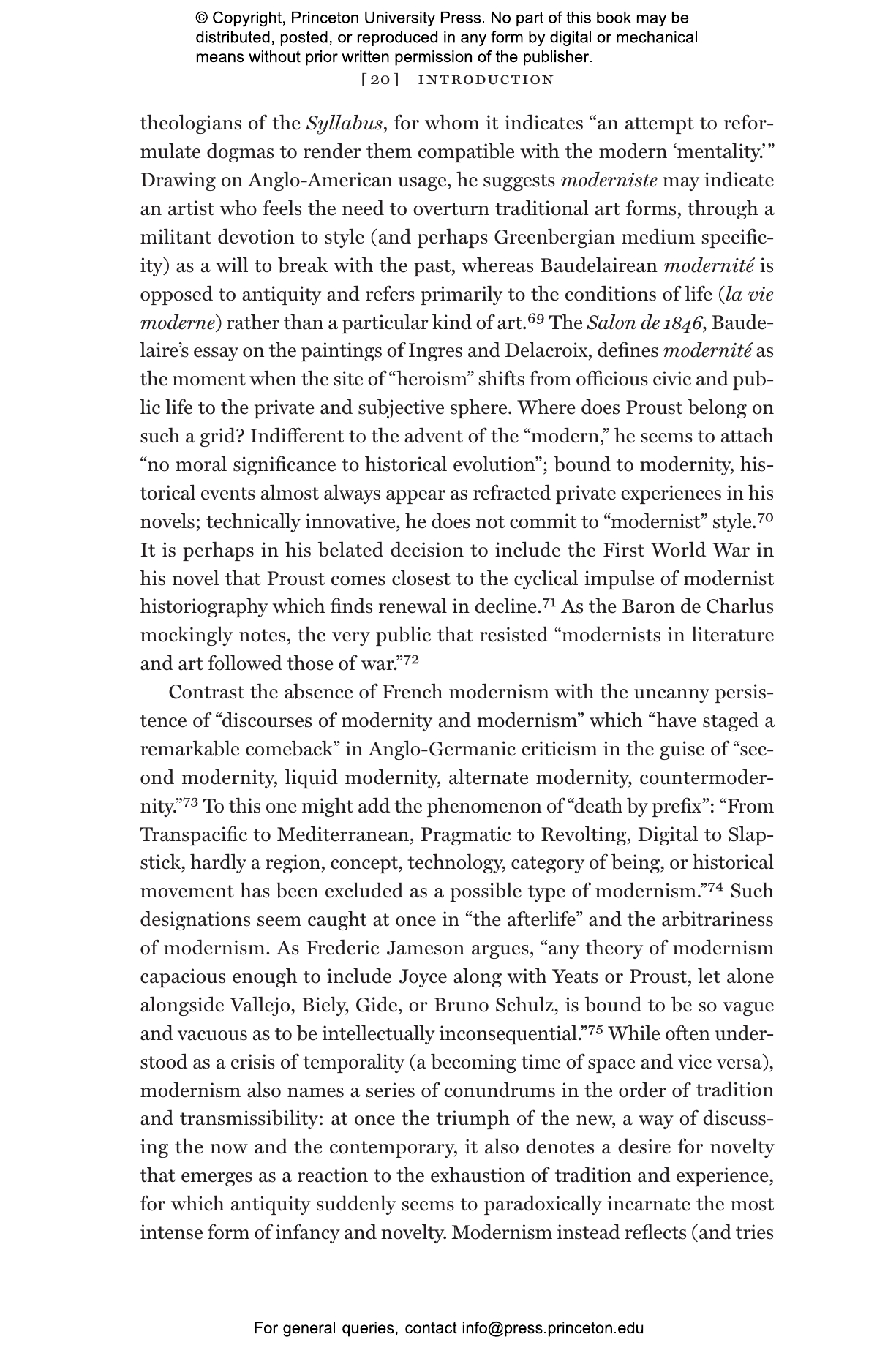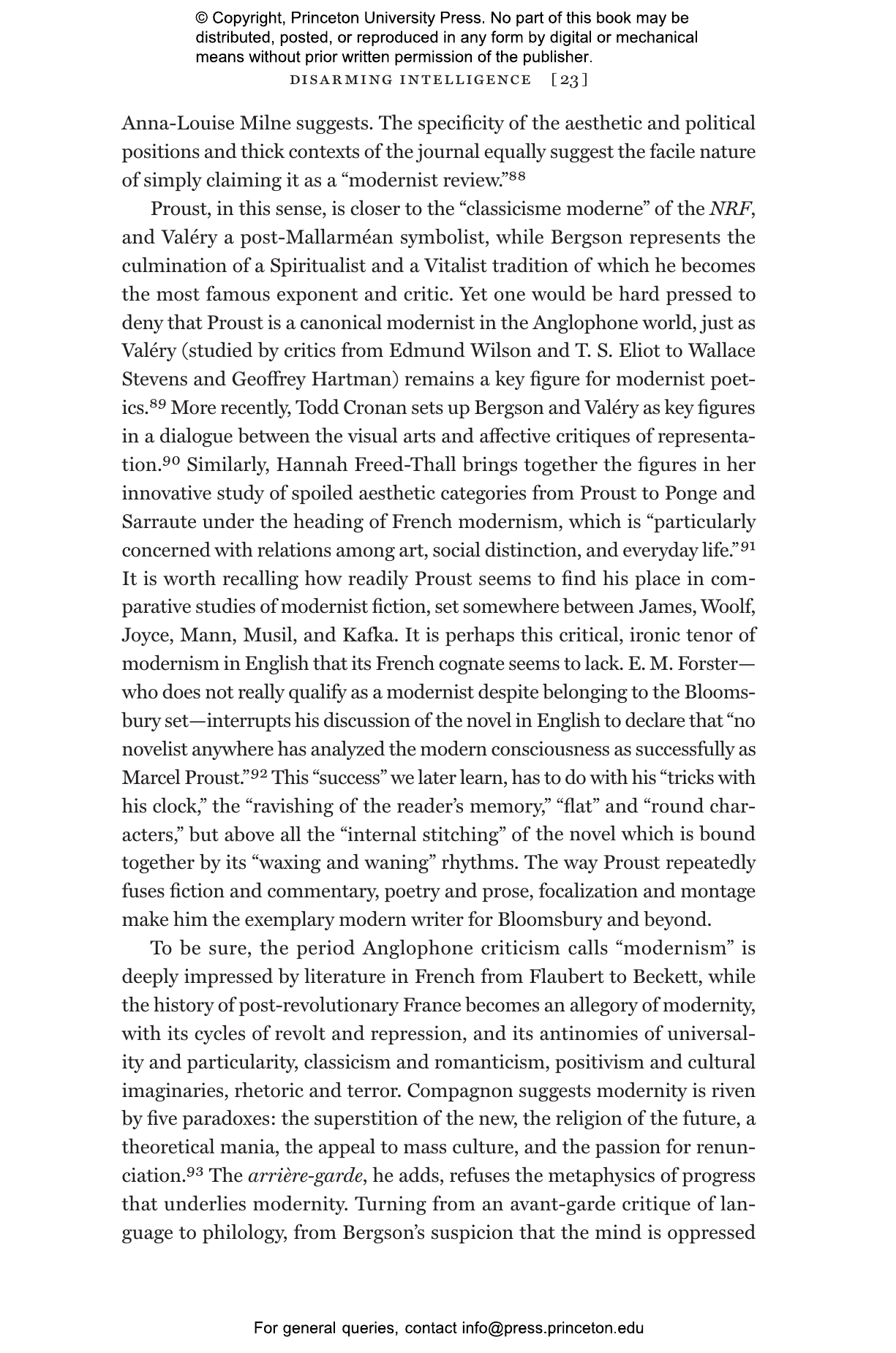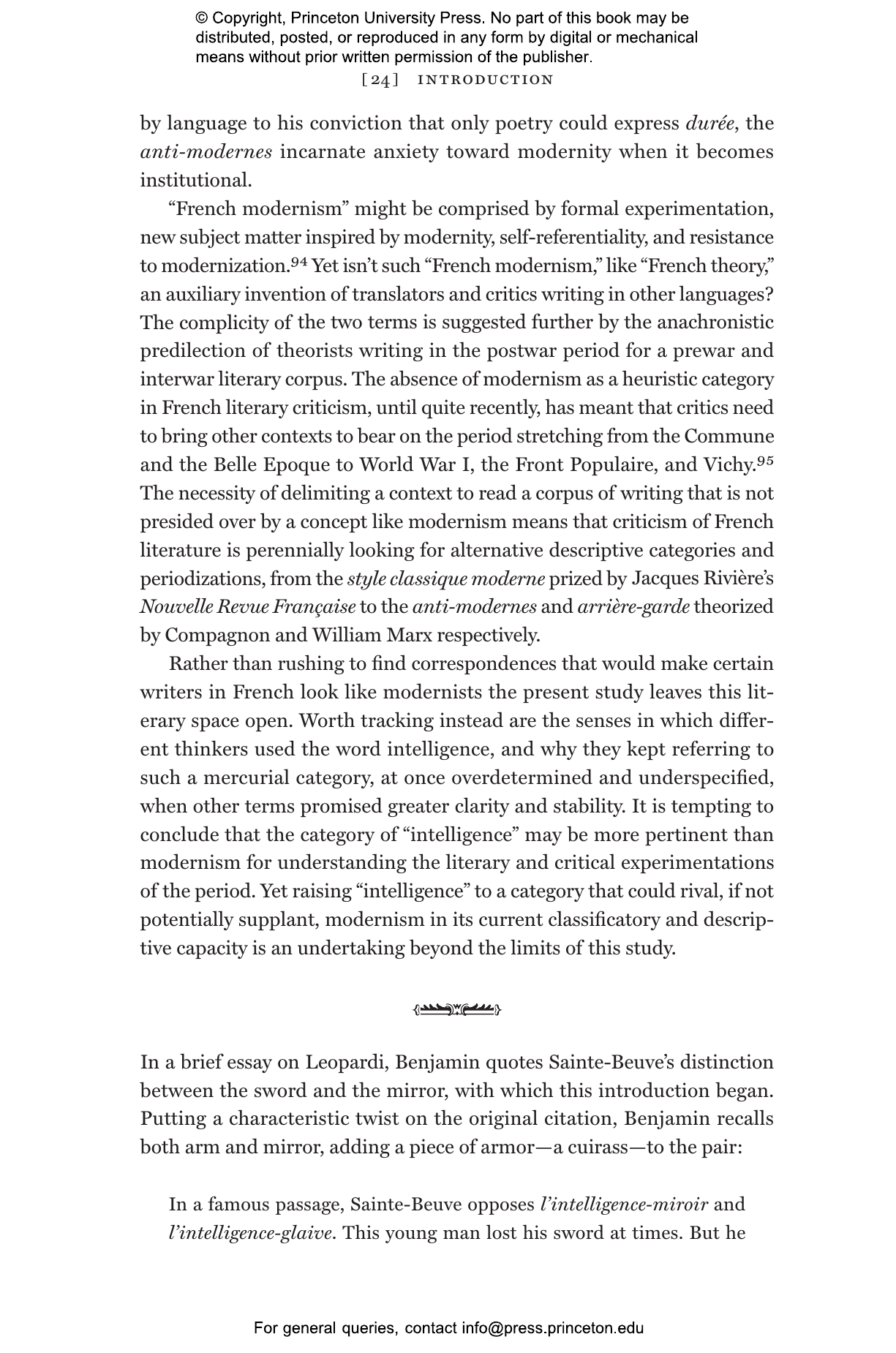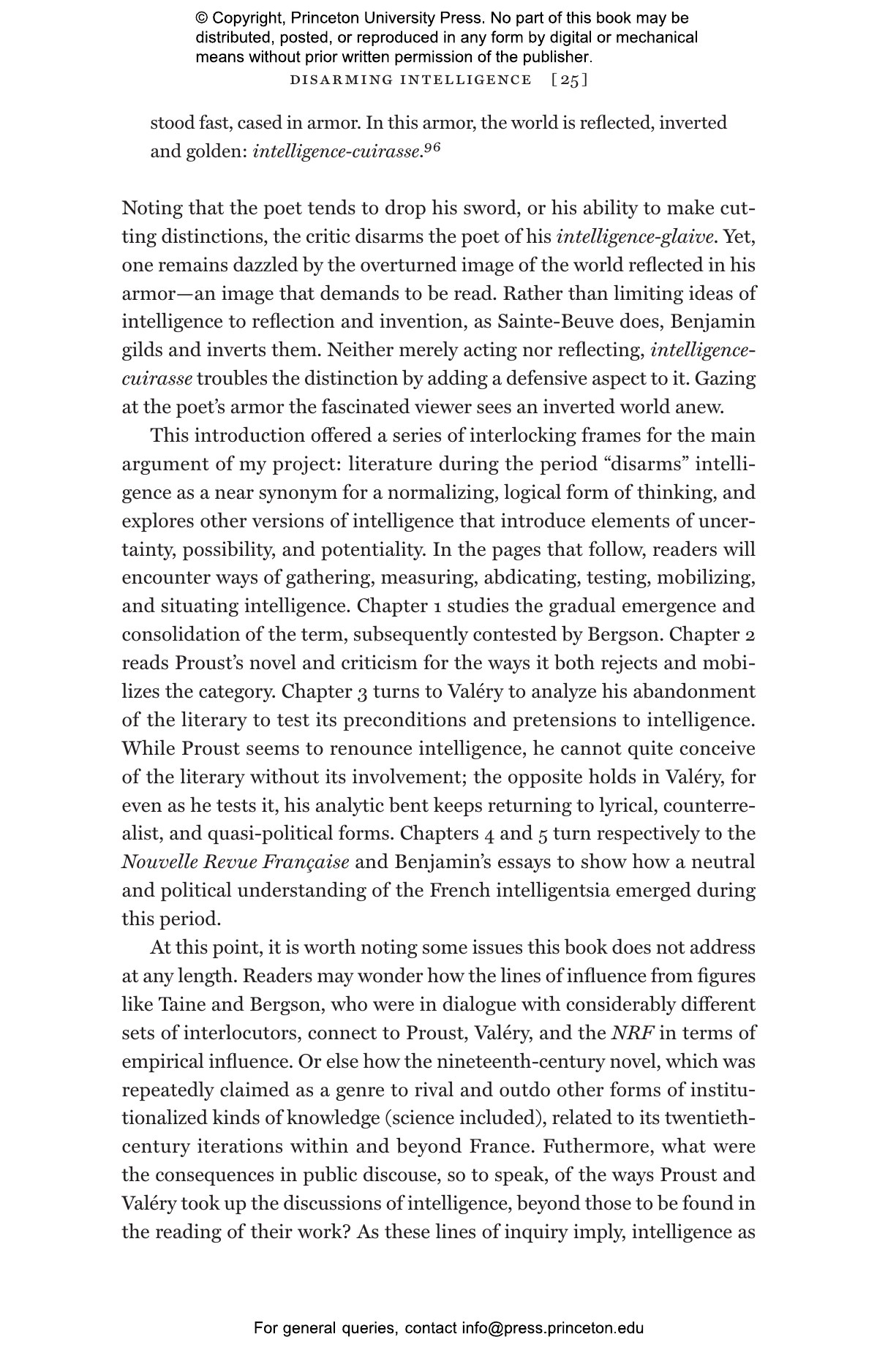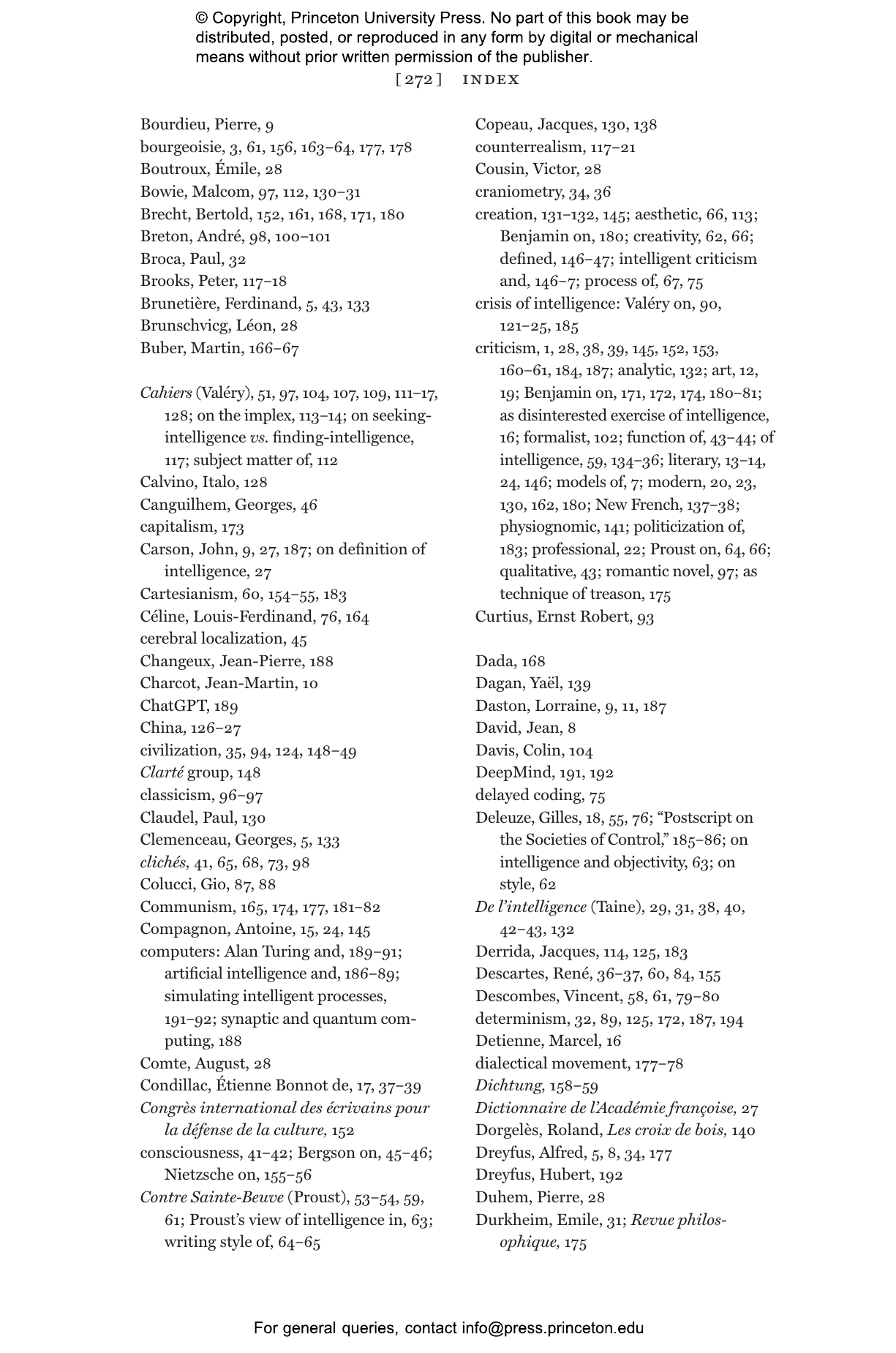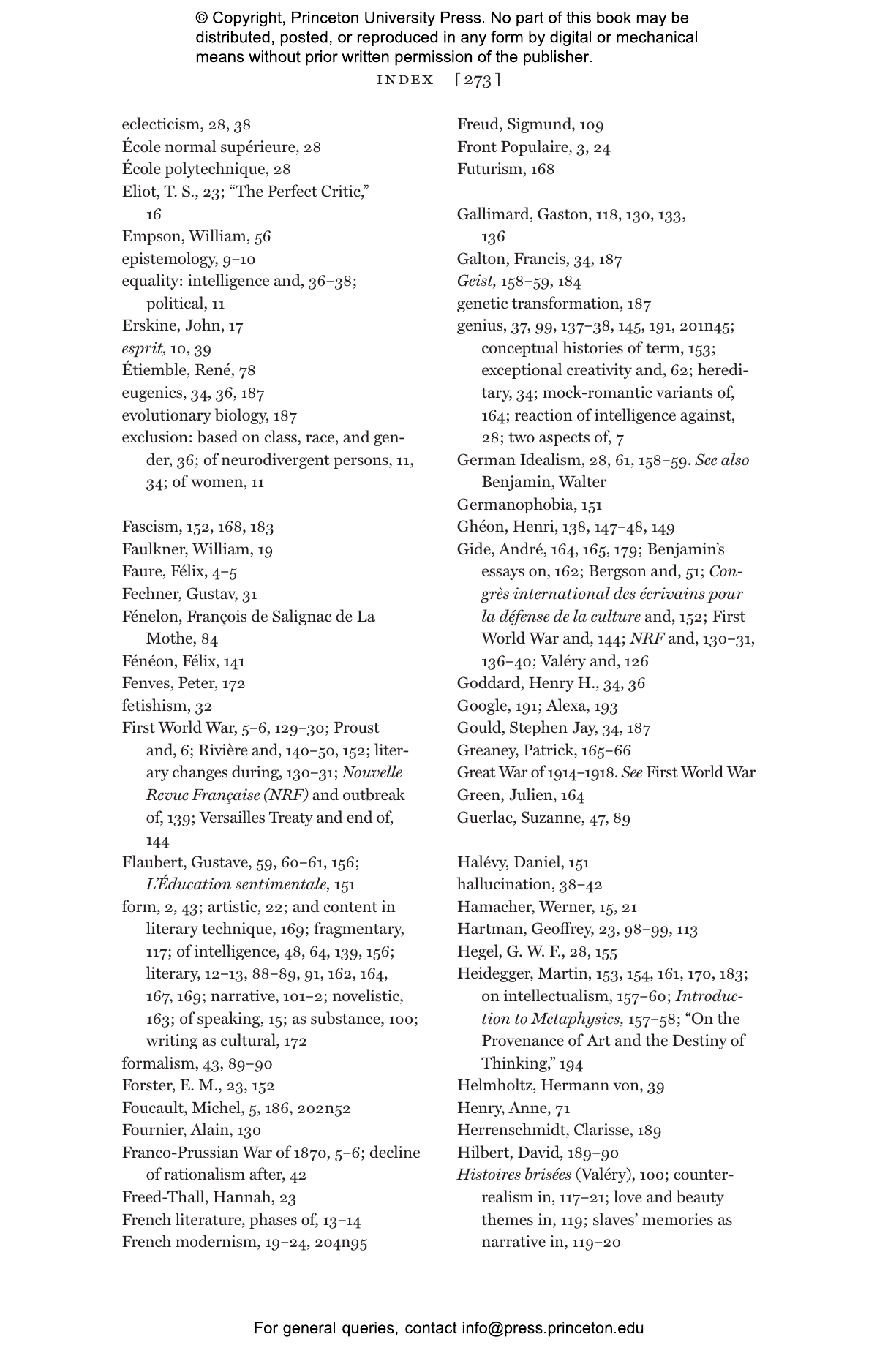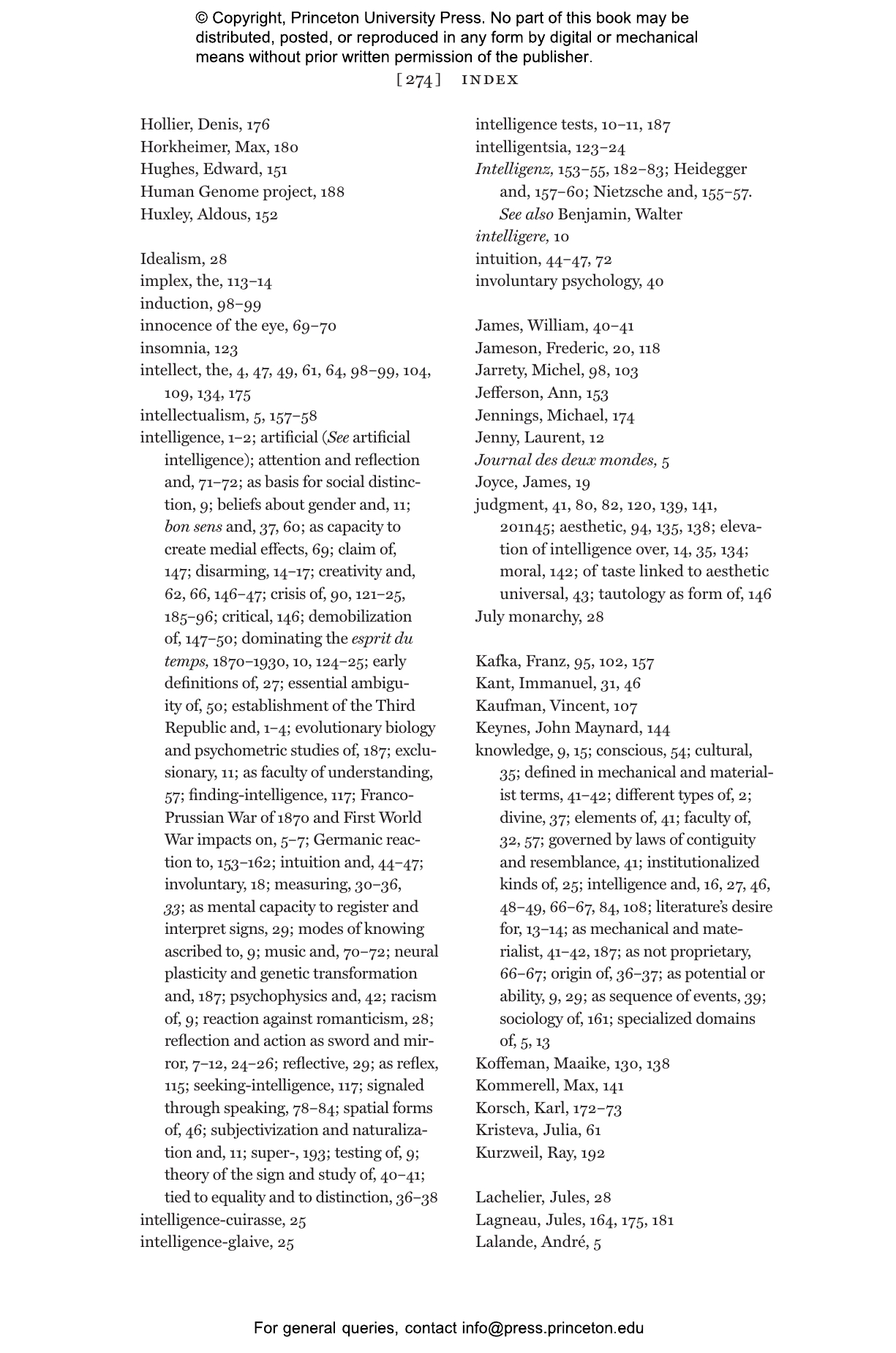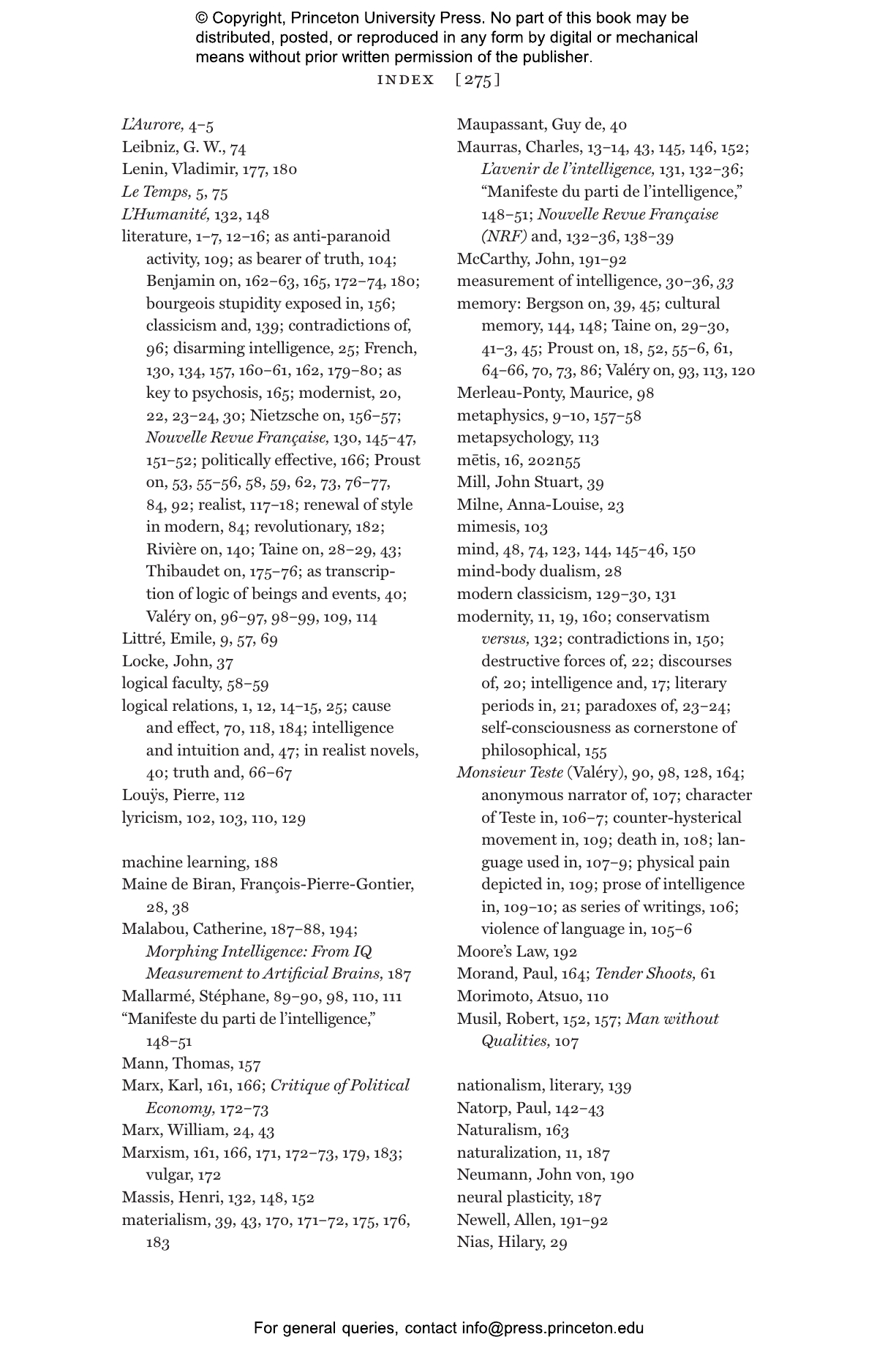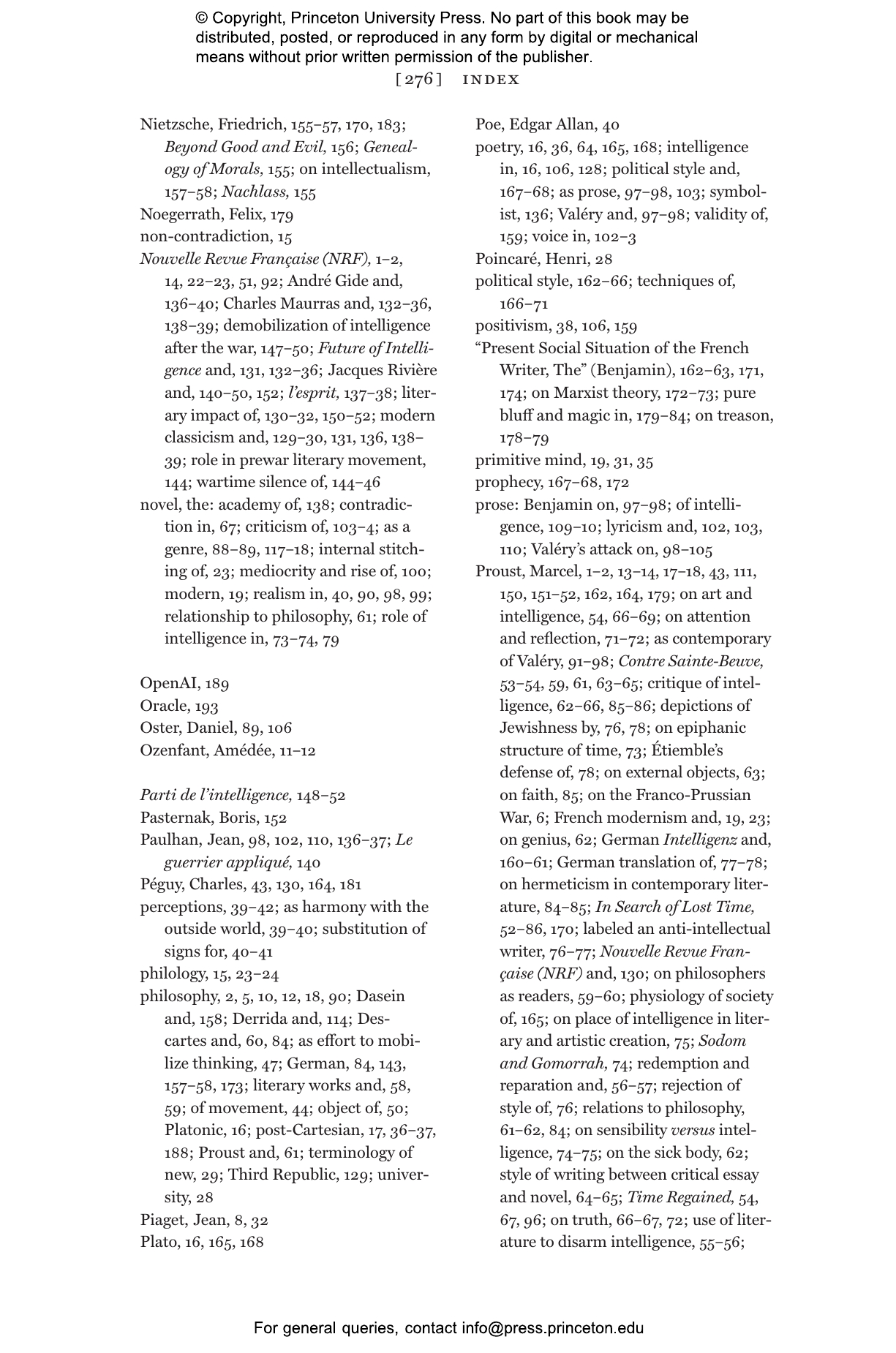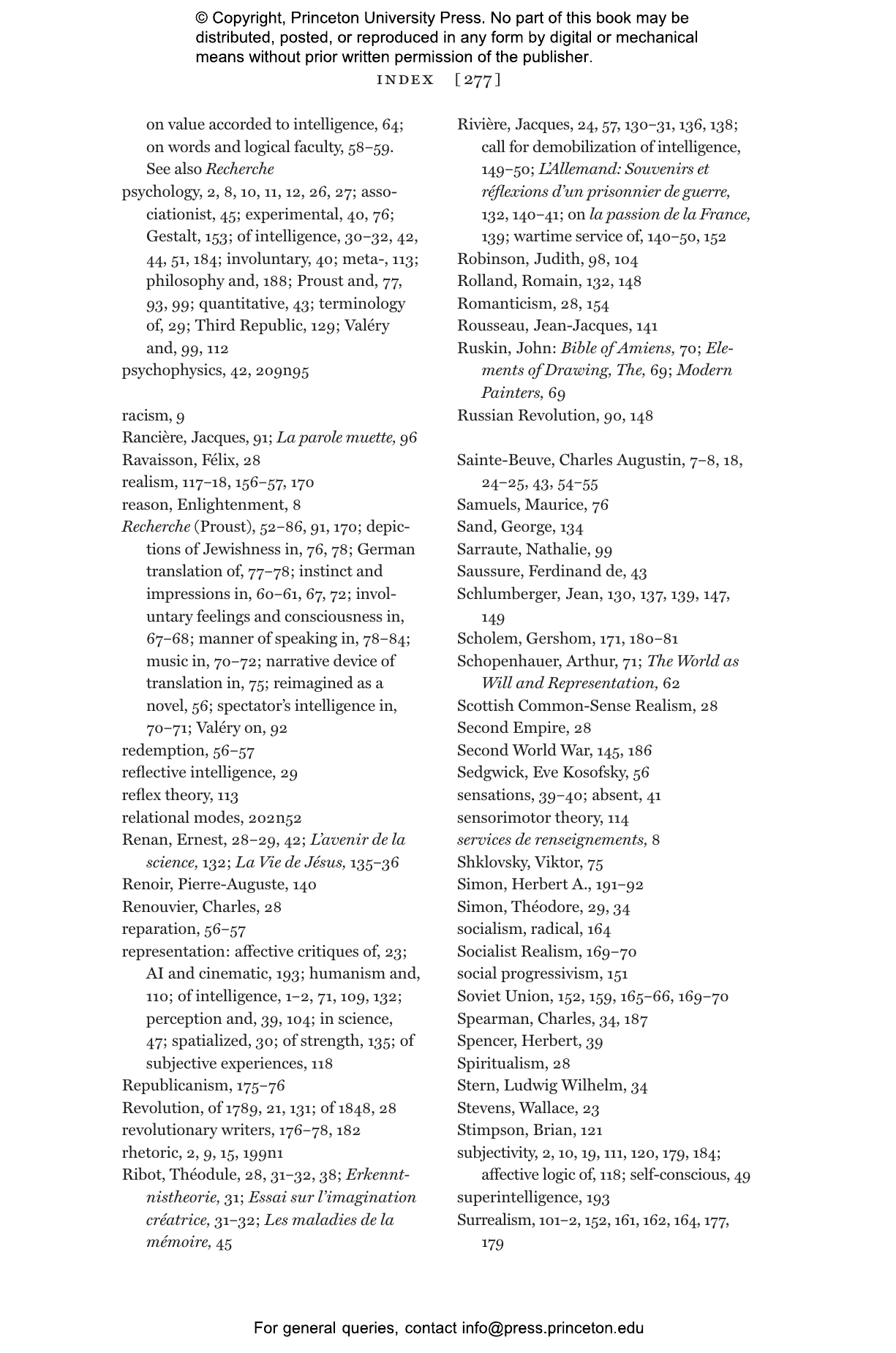In the late nineteenth century, psychologists and philosophers became intensely interested in the possibility of quantifying, measuring, and evaluating “intelligence,” and using it to separate and compare individuals. Disarming Intelligence analyzes how this polyvalent term was consolidated and contested in competing discourses, from fin de siècle psychology and philosophy to literature, criticism, and cultural polemics around the First World War.
Zakir Paul examines how Marcel Proust, Henri Bergson, Paul Valéry, and the critics of the influential Nouvelle revue française registered, negotiated, and subtly countered the ways intelligence was invoked across the political and aesthetic spectrum. For these writers, intelligence fluctuates between an individual, sovereign faculty for analyzing the world and something collective, accidental, and contingent. Disarming Intelligence shows how literary and critical styles questioned, suspended, and reimagined what intelligence could be by bringing elements of uncertainty and potentiality into its horizon. The book also explores interwar political tensions—from the extreme right to Walter Benjamin’s engaged essays on contemporary French writers. Finally, a brief coda recasts current debates about artificial intelligence by comparing them to these earlier crises of intelligence.
By drawing together and untangling competing conceptions of intelligence, Disarming Intelligence exposes its mercurial but influential and urgent role in literary and cultural politics.
Zakir Paul is assistant professor of comparative literature at New York University.
“Zakir Paul’s illuminating, erudite, and timely study uncovers the role of intelligence as a contested watchword—culturally overdetermined and ideologically ambiguous—in Third Republic France and in European thought more broadly. His insightful readings highlight the power of literary form to test and disarm intelligence as a normalizing force, in order to reconfigure it as an expanded space of possibility.”—Alison James, author of The Documentary Imagination in Twentieth-Century French Literature
“On rare occasions, a book comes along that explodes the self-evidence that has shrouded certain key words, thus allowing long-hidden conflicts and struggles to become legible. Through precise and incisive readings of Bergson, Proust, Valéry, and Walter Benjamin, Zakir Paul lays bare the fault lines that traverse the ‘embattled concept’ of intelligence in literature, criticism, philosophy, psychology, and politics.”—Samuel Weber, author of Preexisting Conditions: Recounting the Plague
“Intelligence can sparkle or it can fail; it can, in the pun of Zakir Paul’s title, be both disarming and disarmed. For Proust, intelligence best served ‘to establish the inferiority of intelligence.’ Let’s say, then, that Paul’s remarkable book is more than intelligent in showing how and why intelligence mattered in Proust and Valéry’s world.”—Michael Lucey, author of What Proust Heard: Novels and the Ethnography of Talk
“With Disarming Intelligence, Zakir Paul focuses on the previously neglected evolution of intelligence as an epoch-defining concept in Third Republic France, and thereby elucidates themes and tensions that continue to determine usage today. This poignant and nuanced study deftly orchestrates astute textual analyses with historical detail, and literary criticism with theoretical reflection.”—John T. Hamilton, author of France/Kafka: An Author in Theory
“This is a fascinating book. In Zakir Paul’s ambitious argument, intelligence becomes the signifier of different understandings of knowledge, which follow developments in science, philosophy, and the general culture of France from the late nineteenth century to the interwar period.”—Effie Rentzou, Princeton University


